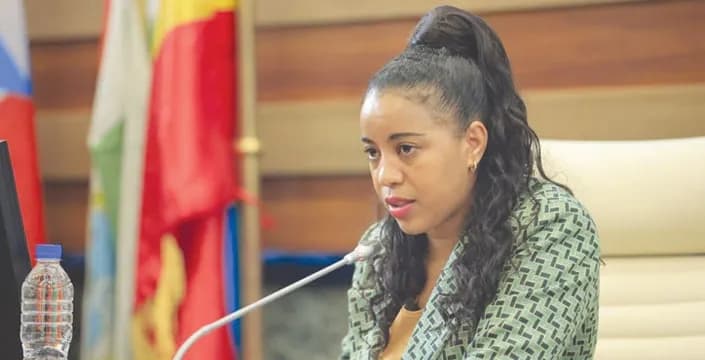Progress for 0 ad
Progress for 1 ad
Progress for 2 ad
Progress for 3 ad


Munir Shemsu
Addis Ababa, Ethiopia

Allegations of rural inaccessibility, internet shutdowns, hefty tariffs, and service unreliability were forwarded against Ethiopia’s state-owned telecom operator at Parliament.
Management from Ethio telecom, which recently issued Ethiopia’s first Initial Public Offering (IPO), were busy Wednesday morning responding to over 236 questions issued by the public and MPs. As the 130-year-old state-owned operator embarks on the final stage of its three-year growth strategy, it has amassed a formidable 80 million-strong customer base.
However, an underdeveloped road infrastructure, limited reach of national electric grid, and financial constraints continue to undermine ethio tel’s service accessibility across rural Ethiopia.
Desalegn Chane (PhD), an opposition MP, demanded explanations regarding internet blackouts in areas experiencing political instability.
“Internet is just about as important as water and electricity,” Desalegn stated.
He pointed out how internet coverage becomes even more essential in conflict areas as it enables mobile payment and minimizes exposure of citizens to violence. Desalegn also expressed frustration over the mobile data prices of ethio tel which he felt were far too hefty.
“I find myself wondering if Ethio telecom engages in theft,” he wittingly opined.
The opposition MP further alleged that his device and SIM card had been disabled by the telecom operator last year without legal justification.
Localized frustrations over rural inaccessibility were also echoed by other parliamentarians.
Bartema Fikadu, another opposition MP, lauded the operator’s expansion of network coverage over the past few years while questioning if the radius of the cell towers had decreased. He praised the CEO’s work ethic and commitment in leading the telecom operator.
Frehiwot Tamiru, Ethio telecom’s CEO for the last six years, acknowledged limitations while highlighting significant milestones for the Company. She stated that nearly 43 million customers use ethio tel’s internet services, with around 776,000 relying on broadband connections. The operator currently offering 270 services is the 17th biggest telecom provider in the world, with close to 82 million devices connected to its network.
The CEO, currently balancing a 1.1 billion-dollar budget for the year, pinned the realization of the government’s Digital Ethiopia strategy on expanding smartphone penetration, digital literacy, and affordability.
Ethio tel has also managed to accelerate its digital financial services with the flagship ‘telebirr’ mobile money service onboarding nearly 52 million customers. At just three years old, telebirr has facilitated 1.3 billion transactions amounting to close to 3.3 trillion birr.
The mobile money service has also made its presence felt in the digital lending space, managing to loan out nearly 17 billion birr to 7 million customers. Telebirr’s provides its digital lending services by working with the state-owned Commercial Bank of Ethiopia (CBE) and the privately owned Dashen Bank.
Frehiwot indicated plans to expand 4G internet coverage into 500 new locations in the current year, which would more than double the coverage expansion in the past four years. Nonetheless, parliamentarians pressed for explanations to commonly overlooked issues undermining the telecom operator’s reliability.
According to the CEO, the upgrade from CDMA to the current 3G and 4G internet service entailed a reduction in radius. She assured MP’s that it was being phased out as part of an exit strategy in line with international standards.
Frehiwot explained that the tariff adjustments stemmed from recent macroeconomic reforms that led to the devaluation of the local currency. She underscored that Pay-as-You-Go mobile data rates had remained the same even amid the tariff rise.
“Our tariff adjustments have tried to spare low-income households,” the CEO noted.
👏
😂
❤️
😲
😠

Munir Shemsu
Munir S. Mohammed is a journalist, writer, and researcher based in Ethiopia. He has a background in Economics and his interest's span technology, education, finance, and capital markets. Munir is currently the Editor-in-Chief at Shega Media and a contributor to the Shega Insights team.
Your Email Address Will Not Be Published. Required Fields Are Marked *